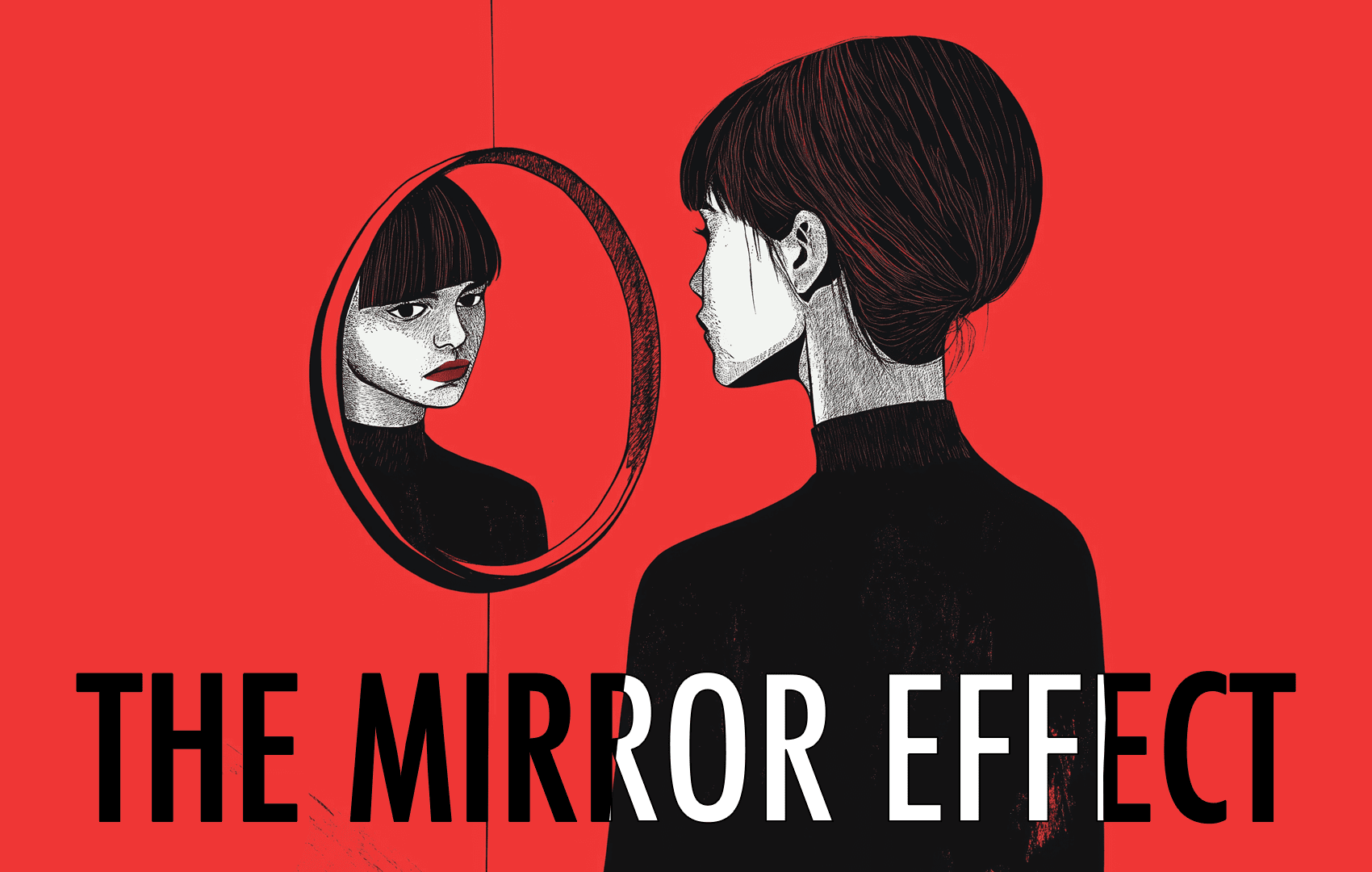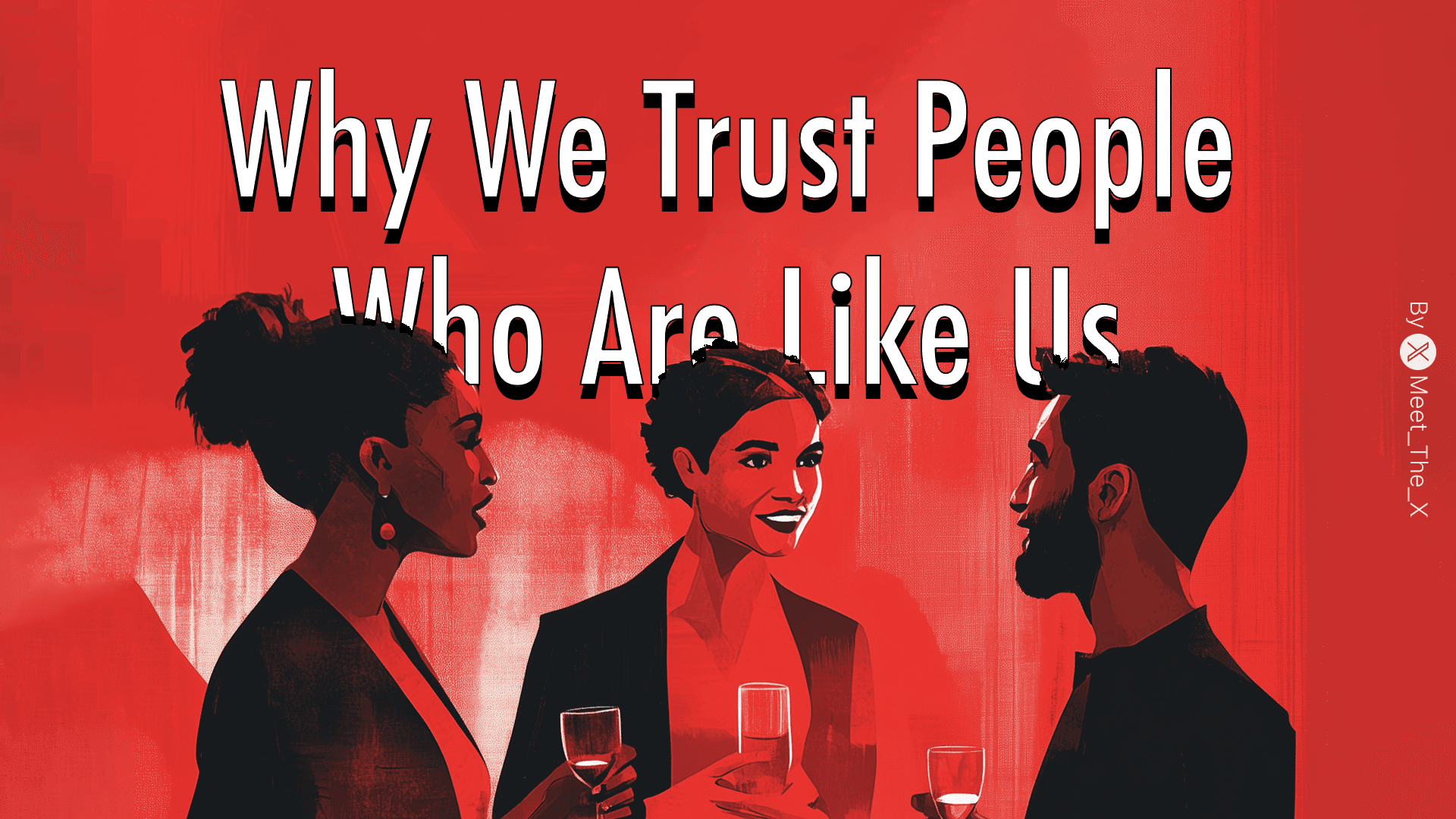Imagine you’re at a party full of strangers. You don’t know anyone there, but you start talking to two people. They’re both friendly, but one of them just clicks with you. They like the same music, laugh at the same jokes, and even share a few of your pet peeves. Almost instantly, you feel more at ease with this person. Without even realizing it, you start to trust them more than the other.
But why do we trust people who seem like us? Why does similarity make us feel safe? There’s actually a lot of psychology behind this. Let’s break it down.
1. It Feels Good to Be “Right”
When we meet people who are similar to us, it makes us feel like our own opinions and choices are “right.” Psychologists call this social validation. If someone shares your beliefs and tastes, it feels like they’re confirming that you’re on the right track, and this reassurance makes you feel comfortable with them.
Think back to the party: finding someone who thinks like you feels good, like a little pat on the back. That feeling of being “right” makes it easy to trust them.
2. Predictability: It’s Easy to “Read” Them
We tend to trust people who are easy to predict. When someone has a similar personality or outlook, it’s easier to guess how they’ll act, making them feel less like a mystery. This sense of predictability is comforting.
At the party, when that person laughs at the same jokes and shares similar ideas, it’s like they’re on the same “script” as you. This predictability helps you feel safer, so you naturally start to trust them more.
3. Familiarity Feels Comfortable
The more familiar something feels, the easier it is to trust. When we meet someone who reminds us of ourselves or others we know, it doesn’t take as much mental effort to understand them. This is called the familiarity effect, and it’s why seeing yourself in someone else feels like meeting an old friend, even if you just met.
Think of it like when you visit a new place: the first day feels strange, but after a few days, it starts to feel comfortable. People are the same; the more familiar they feel, the more comfortable—and trustworthy—they seem.
4. Our “Tribe” Makes Us Feel Safe
For thousands of years, humans have survived by sticking to their “tribe,” or group. In the past, our “tribe” was made up of people who looked and thought like us. This idea of an ingroup—a group we belong to—is still very powerful. It’s why we feel safer with people who seem similar.
At the party, the person who shares your values or interests might feel like they’re part of your “tribe,” making you trust them more. Our brains are wired to feel safer with “our people,” even if it’s just a gut feeling.
5. Empathy: Feeling Understood
When we meet people with similar experiences or ideas, we think they might understand us better. This shared understanding is what psychologists call empathy. Empathy helps us feel connected and safe, and it’s a big reason we trust people who seem like us.
For example, if your new friend at the party has had similar struggles or hobbies, you might feel like they understand you. People who seem to “get” us feel like they’re on our side, and that naturally builds trust.
Putting It All Together: The “Mirror Effect”

So why do we trust people who are like us? It’s a mix of feeling validated, safe, and understood. This “mirror effect” is powerful and helps us find people we feel comfortable with, from friendships to work relationships.
Next time you find yourself drawn to someone, think about it. Are they reflecting a little bit of you back to yourself? Trust often starts with seeing something familiar, something that feels like “home.” And that’s why similarity helps us find people we can truly connect with.



